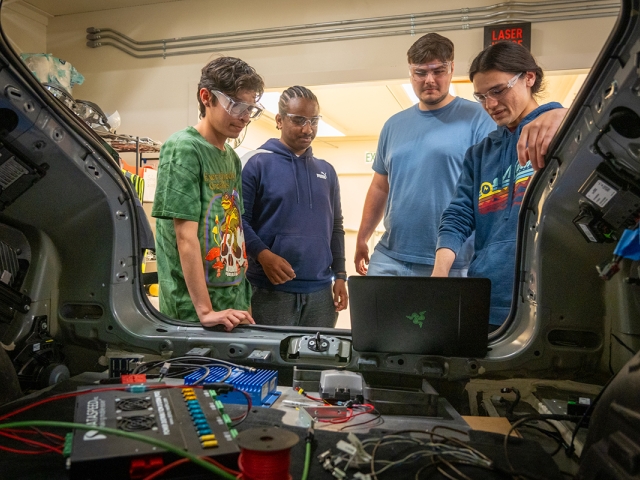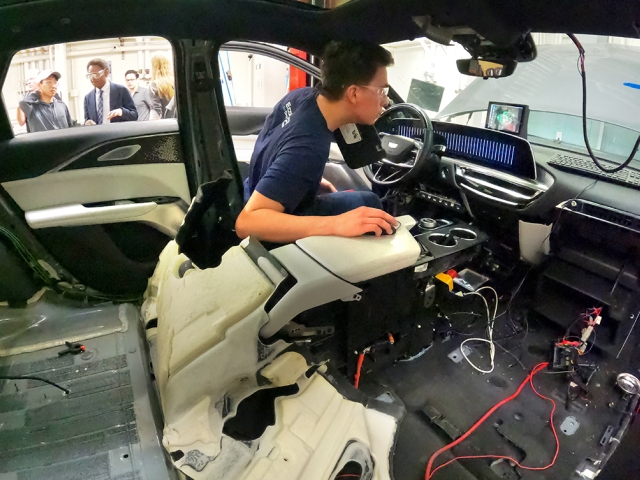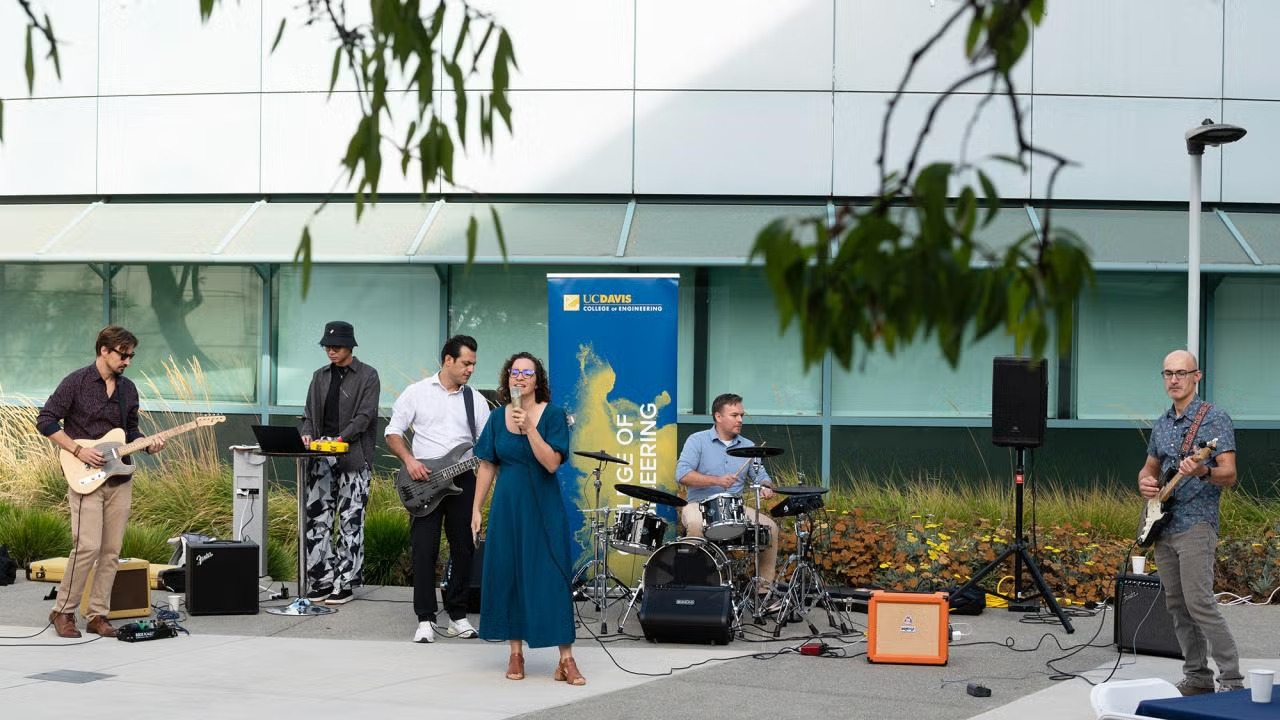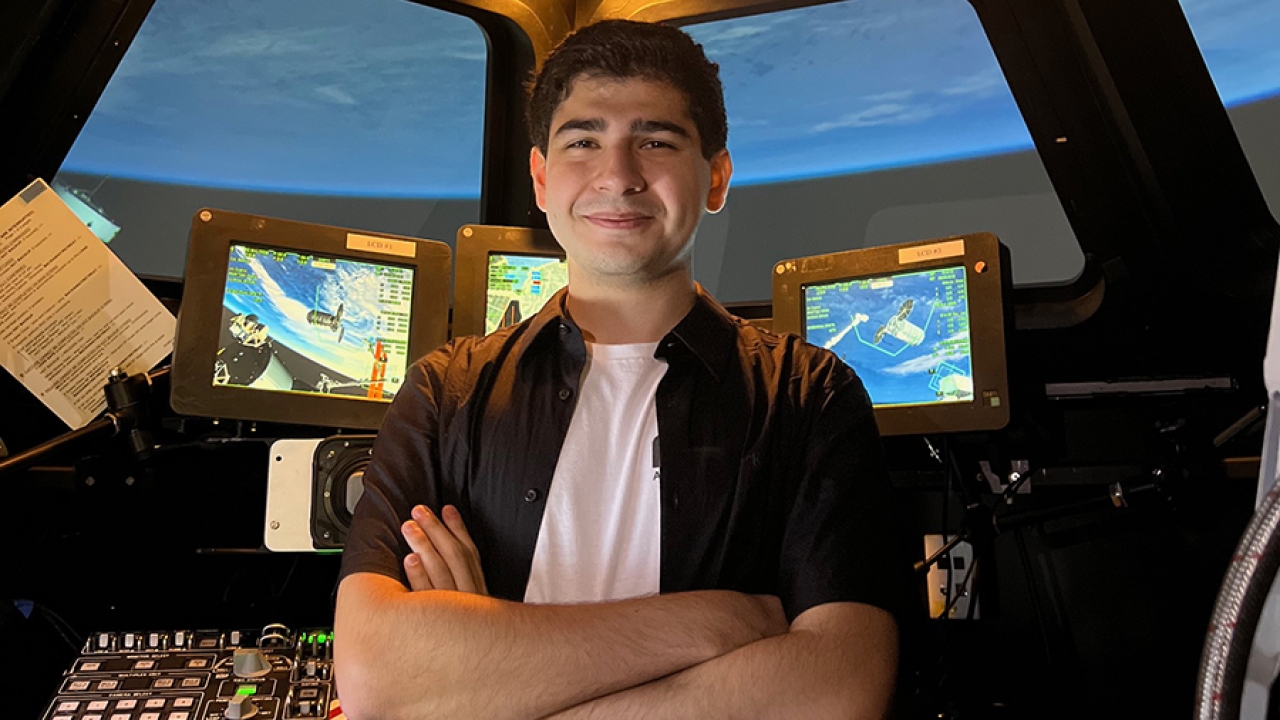It's Electric
From the EcoCAR garage located in the U-shaped loading dock of Bainer Hall, metal clangs and fusing tools zap as all hands are on deck for building a car of the future.
The UC Davis EcoCAR team is halfway through the 2022-2026 cycle of the EcoCAR Electric Vehicle Challenge. UC Davis is one of 15 universities selected to compete in the competitive effort coordinated by the U.S. Department of Energy and in partnership with Argonne National Laboratory, General Motors and MathWorks.


Over the four years, students must convert a Cadillac Lyriq EV into an autonomous, next-generation battery-electric vehicle with advanced features like cooperative adaptive cruise control, autopark and automatic intersection navigation.
During the first year of the challenge, the UC Davis team’s day-to-day consisted of meetings, simulations, theoretical discussions and digital designs; this year, the team has begun physically working on the car, from the controls and modeling sub-team designing the car’s control systems to the mechanical and electrical designers welding steel and wiring up connectors to assemble the car safely with their modifications.
The team aims to have their preliminary version of the vehicle up and running by mid-June, the end of the spring quarter, after taking the car to Arizona for testing during the EcoCAR Year 2 Competition in May.
EcoCAR Competition Update
EcoCAR UC Davis received eight awards and placed fifth overall at the EcoCAR EV Challenge Year 2 Competition in May 2024. The awards garnered the team a total of $9,250 and included taking first place in communications presentation, propulsion controls and modeling presentation, and winter project status update report. The team was also named runner-up in Excellence in Leadership and the recipient of the Over the HIL Award, referring to their hardware-in-the-loop simulation that tests and verifies the system performance of the vehicle.
Next year, the students will focus on implementing advanced controls and features like regenerative braking, which captures the energy created from braking to charge the car’s battery. Year four will be dedicated to ramping up the autonomous controls and implementing and testing custom features currently being developed in simulation into the actual vehicle.
For Ajay Suresh, the project manager for UC Davis EcoCAR and an master's student in electrical and computer engineering who will graduate this summer, the road ahead is full of promise.
“It's a very exciting time,” he said. “The students have grown immensely over the last two years, and we can see tangible results now.”




